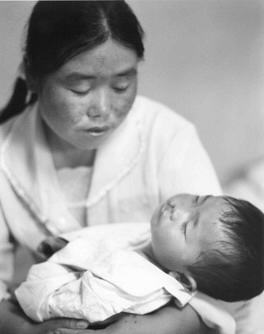Dr. Larrabee now directs the University of Washington School of Medicine’s fellowship program in facial plastic surgery. He is First Vice President of Pan Pacific Facial Plastic Surgery Society and President-Elect of the International Federation of Facial Plastic Surgery Societies.
Explore This Issue
August 2009Travel and Contribution
Dr. Larrabee began his humanitarian work in Central America in the 1970s, but has since participated in medical missions to Mexico, Haiti, Africa, Kazakhstan, and China. In recent years he has generously contributed to the work of the Smile China project-a Toronto-based charitable organization founded by Joseph Wong-performing surgical interventions for cleft lip and palate deformities to children in the People’s Republic of China. In China, these deformities occur in one in 700 births; each year there are more than 40,000 new cases, of which 10% go unrepaired.2
These missions are life-affirming for the surgical team, said Dr. Larrabee. Without the administrative headaches we work with every day in our own practices, the surgeon can focus on transforming the lives of young patients with facial deformities. The joy and excitement we felt in our early careers return spontaneously. We remember why we became physicians and surgeons. And most important, when we return to our day-to-day practice in the US, we are able to see through the many obstacles between us and our patients and to realize that our essential relationship with them remains.

As Vice President for Education of the American Society of Facial Plastic and Reconstructive Surgery, Dr. Larrabee worked with colleagues to begin the Face to Face Program. This group provides reconstructive facial surgery for patients with war casualties, as well as those with injuries from domestic violence. Dr. Larrabee arranged the first trip for this purpose to the former Yugoslavia as it was just beginning to dissolve. He made about seven subsequent trips to treat victims, from all sides of the Balkan wars, who have incurred injuries. His team of physicians from five US states and Switzerland worked pro bono at local hospitals, and eventually taught the physicians and students who were handicapped by insufficient equipment and supplies. The group’s teaching is an important component of its work because, ultimately, these practitioners must treat these patients independently.
In 2007, Dr. Larrabee participated in beginning the not-for-profit Global Surgical Outreach (www.globalsurgicaloutreach.org ) to examine the global burden of surgical disease and to sponsor surgical missions. Through this project, Dr. Larrabee and his colleagues are taking a systems-analysis approach to surgical status. The group is publishing and educating on congenital abnormalities and their reconstruction, studying the epidemiology of the congenital deformities they see, and evaluating the outcomes of interventions performed. In addition, through a new working group of the American College of Surgeons, they are applying for grants to fund investigations of the impact of surgical disease in less-developed countries.
Leave a Reply